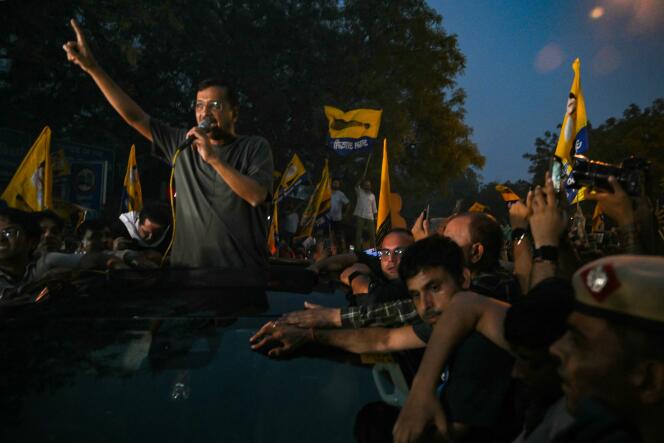


A top opponent of Indian Prime Minister Narendra Modi left jail on Friday, May 10 warning that his country was facing “dictatorship” after a court ordered his release on bail to campaign in an ongoing national election.
Arvind Kejriwal, chief minister of the capital Delhi and a key leader in an opposition alliance formed to compete against Modi in the polls, was detained in March over a long-running corruption probe. He is among several leaders of the bloc under criminal investigation, with one of his colleagues describing his arrest the month before national polls began as a “political conspiracy” orchestrated by the ruling Bharatiya Janata Party (BJP).
Kejriwal was greeted by more than 1,000 exuberant supporters as he walked out of Tihar Jail on Friday evening. “We have to save this country from dictatorship,” he told the crowd. “I am fighting against it with all of my might.”
India’s Supreme Court said earlier he could leave custody until June 1, the last day of voting in the six-week election. “No doubt, serious accusations have been made, but he has not been convicted,” their ruling said. “He does not have any criminal antecedents. He is not a threat to the society.”
Kejriwal’s government was accused of corruption when it implemented a policy to liberalize the sale of liquor in 2021 and give up a lucrative government stake in the sector. The policy was withdrawn the following year, but the resulting probe into the alleged corrupt allocation of licenses has since led to the jailing of two top Kejriwal allies.
Rallies in support of Kejriwal, who has consistently denied wrongdoing and refused to relinquish his post after his arrest, were held in numerous other big cities around India after he was taken into custody.
Kejriwal, 55, has been chief minister for nearly a decade and first came to office as a staunch anti-corruption crusader. He had resisted multiple summons from the Enforcement Directorate, India’s financial crimes agency, to be questioned as part of the probe. His release was made conditional on his agreement not to make public comment on the case against him, not to interact with witnesses in the case and not to visit the offices of the Delhi government.
This post was originally published on this site be sure to check out more of their content.






